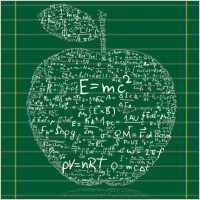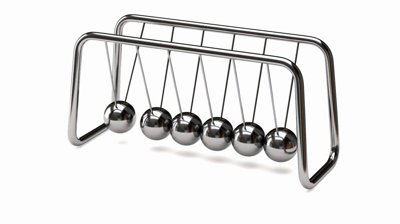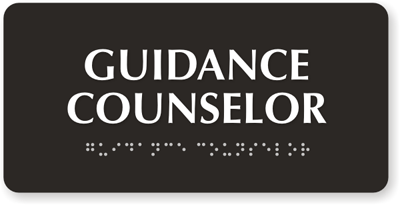Can You Use Calculus on Ap Physics 1
Are you interested in taking AP Physics? Y'all might have noticed that the AP programme offers more than than one physics course. So what's the difference between the different AP Physics classes—AP Physics i, AP Physics 2, and AP Physics C? We will introduce you to them and help you decide which one to have. The AP Program used to offer three physics classes: AP Physics B, AP Physics C: Mechanics and AP Physics C: Electricity and Magnetism. However, the AP program recently replaced AP Physics B, a one-year course, with 2 one-yr courses: AP Physics one and AP Physics 2. These are both algebra-based physics courses, which means they don't require a math background beyond Algebra II. The AP program still offers AP Physics C, which is broken into two courses and exams: Physics C: Mechanics and Physics C: Electricity and Magnetism. Many schools teach these equally the aforementioned class, or just teach i topic. Both of these courses are calculus-based. This means that there are now four AP Physics exams: The fact that there are at present iv AP Physics exams tin can be confusing. So practise yous take Physics 1, Physics 2, and Physics C in order? What'south new about Physics 1 and Physics 2? We will introduce you to all of the courses and help yous decide which class is right for yous. AP Physics one is an introductory, algebra-based, college-level physics course. It explores primal physics concepts like motion, strength, Newtonian mechanics, gravity, free energy, and momentum . AP Physics 1 was designed to be a beginning-year physics course which you can take without prior physics feel. This is the primary difference from the old AP Physics B course, which was designed to be a 2nd-year physics form. While there technically aren't prerequisites for AP Physics 1, the AP program recommends that students have at least taken geometry and are concurrently enrolled in Algebra Ii while taking this course. If you're not that far along in math yet, consider taking a different science form until you're caught up, equally math is very important in physics. AP Physics two is also an algebra-based, higher-level physics form. However, it delves into some more advanced topics than Physics 1. Physics 2 explores fluid statics and dynamics, thermodynamics with kinetic theory, PV diagrams and probability, electrostatics, electrical circuits with capacitors, magnetic fields, electromagnetism, physical and geometric optics, and quantum, atomic, and nuclear physics. AP Physics two was designed to be a second-year physics course. This ways it should come after AP Physics 1 or any first-year physics course. Much of its content is similar to the quondam AP Physics B course. This form will focus on more avant-garde physics skills and knowledge, including fluid dynamics, electric currents, magnetism, and quantum physics. You can read the full descriptions of AP Physics 1 and Physics 2 at the College Board'south AP website. Both AP Physics C courses are calculus-based, meaning you should accept already taken calculus or concurrently exist taking calculus while you take either AP Physics C course. This is the master cistron that makes Physics C more challenging than Physics 1 and Physics 2. Additionally, AP Physics C requires that students are enrolled or accept already taken calculus. But what's the difference between AP Physics C: Mechanics and AP Physics C: Electricity and Magnetism? Mechanics covers kinematics, Newton's laws of move, piece of work, energy, ability, linear momentum, circular motion and rotation, oscillations and gravitation. Every bit you lot can encounter, these are many of the same concepts explored in Physics 1. Nonetheless, this form goes into more depth than Physics 1 and uses calculus, making it much more than challenging. Electricity and Magnetism covers electrostatics, conductors, capacitors, dielectrics, electrical circuits, magnetic fields, and electromagnetism. Observe there is some overlap with the Physics 2 curriculum, though again, Physics C will be more than hard since it incorporates calculus. The two topics are sometimes taught every bit the same grade fifty-fifty though in that location are two unlike exams, with each topic being taught over one semester. When taught as a single class, Mechanics is usually taught beginning, and Electricity and Magnetism comes 2d. If schools only teach one topic, it tends to exist Mechanics, since it builds on fabric most commonly taught in start physics classes (Newton's laws, work, free energy, power, etc). Each topic is supposed to be equivalent to one semester of higher calculus-based physics. Because of this, AP Physics C is highly recommended to exist at least a second-year physics course. And so while you don't accept to take Physics i or Physics ii before you lot take Physics C, taking one (or both!) introductory physics courses is recommended. You can read a full description of Physics C at the AP website. Looking for aid studying for your AP exam? Our i-on-one online AP tutoring services can help you prepare for your AP exams. Get matched with a acme tutor who got a high score on the exam yous're studying for! At present that y'all know a little flake well-nigh the dissimilar AP Physics classes, yous're probably wondering which course you lot should take. Or, if you want to take more than one, you're probably wondering the best order to accept the classes in. We volition present a few possible sequences, but we volition likewise give you some steps to follow upwards with your school and then y'all tin choose the grade that's best for yous! If your schoolhouse doesn't offer AP Physics i or you lot don't want the first physics class you lot take to be an AP class, and so one selection is to showtime with a regular or honors physics class, where you acquire the basic concepts of physics. Then, y'all tin can take AP Physics two as your second physics course. This option is ideal for students whose schools don't offer multiple AP Physics classes as well equally students who don't have the fourth dimension or want to have multiple AP Physics classes. Physics 2 is the best AP Physics class to take after a regular or honors physics class (Physics 1 would pretty much merely repeat what you lot already learned). AP Physics C is also an option if you're taking/have already taken calculus and have either Physics 1 or Physics two under your belt. The College Board says taking Physics i and 2 provide a solid physics groundwork for future pre-med, geology, and life sciences students. They as well say it's a practiced selection for students attention colleges where they will have to fulfill a science requirement but will not be studying scientific discipline as their major. If your school teaches AP Physics two but not AP Physics one, you tin can just replace AP Physics 1 with whatsoever introduction to physics course your school offers. Don't jump straight into AP Physics 2—it's meant to exist a 2nd-year physics class! If your school teaches AP Physics 1 but not AP Physics 2, you could accept Physics 1 and so take another natural science course (including chemistry and biology), a science elective. Yous could also consider taking AP Physics C if your school offers it. AP recommends Physics C (forth with AP Calculus AB or Calculus BC) for students aiming for engineering or physical scientific discipline majors in college. However, taking AP Physics 1, Physics 2, and Physics C might exist overkill—you would lose time taking other scientific discipline courses, like biology and chemistry. Getting exposure to all three natural sciences is important for a well-rounded, challenging loftier school career, particularly if yous're going into scientific discipline or engineering. You also want to make sure you lot tin can fit in at least 1 of the AP Calculus classes. Then if you want to take Physics C, start with AP Physics 1 (or a regular physics form), and then have AP Physics C, which will give y'all a total of ii physics classes during high school. Physics C is intended as at least a second-year course, so don't jump into it unprepared. Also make certain you accept taken or are taking calculus while y'all have AP Physics C. Now that you lot have a better idea of what the AP Physics classes cover and the general social club they should exist taken in, what should y'all do side by side? Read this section for the five steps y'all should follow. Offset, meet with your guidance counselor and find out which physics courses your school teaches. Do they offer both AP Physics 1 and AP Physics ii, or practice they but offer a basic introductory physics course? Do they teach AP Physics C? If and then, do they teach Mechanics, Electricity and Magnetism, or both? Getting these answers is the first step to planning your schedule. As well continue in mind that since Physics one and Physics 2 are new classes, schools might even so be working them into their schedules over the next few years. During the meeting with your advisor, ask almost the recommended physics course sequence at your school. There may be required prerequisite courses or placement tests for the AP Physics courses, or your school might accept a recommended society of science classes that includes biology and chemistry. Ask your advisor and enquire other students who teaches the AP Physics courses at your school. You lot can inquire other students currently taking AP Physics what they retrieve of the teacher and how prepared they feel for the AP exam. You can ask your counselor what the AP Physics examination pass charge per unit is like at your school. Getting some background on how the classes are taught at your schoolhouse tin can help you lot make up one's mind if AP Physics is right for you. Equally a brief example, at my high school, our AP Physics grade included a lot of independent work and self-studying. Information technology was corking for students who were cocky-motivated, simply challenging for students who wanted more support. Many students decided whether to take AP Physics based on whether they thought they could handle the independent nature of the course. If yous're concerned nearly taking AP Physics, then looking at course syllabi can give you a sense of the courses' workloads and topics they comprehend. This might aid you choose between taking a regular introduction to physics course or AP Physics i, or choose betwixt AP Physics two and AP Physics C. AP courses oft take summer assignments. AP Physics C in item is likely to have summertime work, specially if your school teaches both topics. Make certain to consider your schedule and summertime commitments (like camps, jobs or trips) before signing upward. Aim to take AP Physics C if y'all are a hereafter engineer or natural sciences major—merely accept information technology alongside or after taking calculus. If your school doesn't offer Physics C, have AP Physics 2 or honors physics if you tin. Taking AP Physics one and Physics 2 is enough if you aren't going to report natural sciences or technology since yous want to brand room for other AP classes in your schedule. If you're considering college engineering but aren't certain if it'southward right for you, taking AP Physics C could be a proficient way to find out if you are up to the challenge and enjoy the topics you would continue to explore in college. Want to dip your toe into the physics pool to see if physics is the correct AP science for you? We have straightforward manufactures on the law of conservation of mass, the specific heat of water, and the three formulas you need to calculate dispatch. How many AP courses full should you lot take? What if you desire to become into an Ivy League school? Read our communication on AP grade load here. Also studying for the SAT/Act? Learn the difference between the two tests, including why 1 tests science and i doesn't. Also figure out which test yous will do best on. Curious nearly what it takes to go a perfect SAT score? Read advice from our total-scorer. One of the single almost of import parts of your college awarding is what classes you choose to take in high school (in conjunction with how well you do in those classes). Our team of PrepScholar admissions experts have compiled their cognition into this single guide to planning out your high school course schedule. We'll suggest yous on how to residual your schedule between regular and honors/AP/IB courses, how to choose your extracurriculars, and what classes you tin can't afford not to accept. 
What AP Physics Classes Are Offered?
AP Physics 1

AP Physics 2
AP Physics C: Mechanics and AP Physics C: Electricity and Magnetism


Which AP Physics Class Should You lot Take?
Selection i: Regular/Honors Physics, Then AP Physics two
Option 2: AP Physics ane, Then AP Physics 2
Option three: AP Physics 1, Then AP Physics C
Adjacent Steps
#1: Become Expert Guidance

#2: Double-Bank check the Course Sequence
#3: Enquiry Your Teachers
#4: Look at the Syllabi
#5: Check on Summer Homework
Bottom Line

What's Next?


About the Author
Halle Edwards graduated from Stanford University with honors. In loftier school, she earned 99th percentile Human action scores as well as 99th percentile scores on SAT subject tests. She besides took nine AP classes, earning a perfect score of 5 on seven AP tests. Equally a graduate of a large public loftier school who tackled the higher access process largely on her own, she is passionate about helping high school students from different backgrounds get the cognition they need to be successful in the college admissions procedure.
Source: https://blog.prepscholar.com/whats-the-difference-between-ap-physics-1-2-and-c
0 Response to "Can You Use Calculus on Ap Physics 1"
Post a Comment